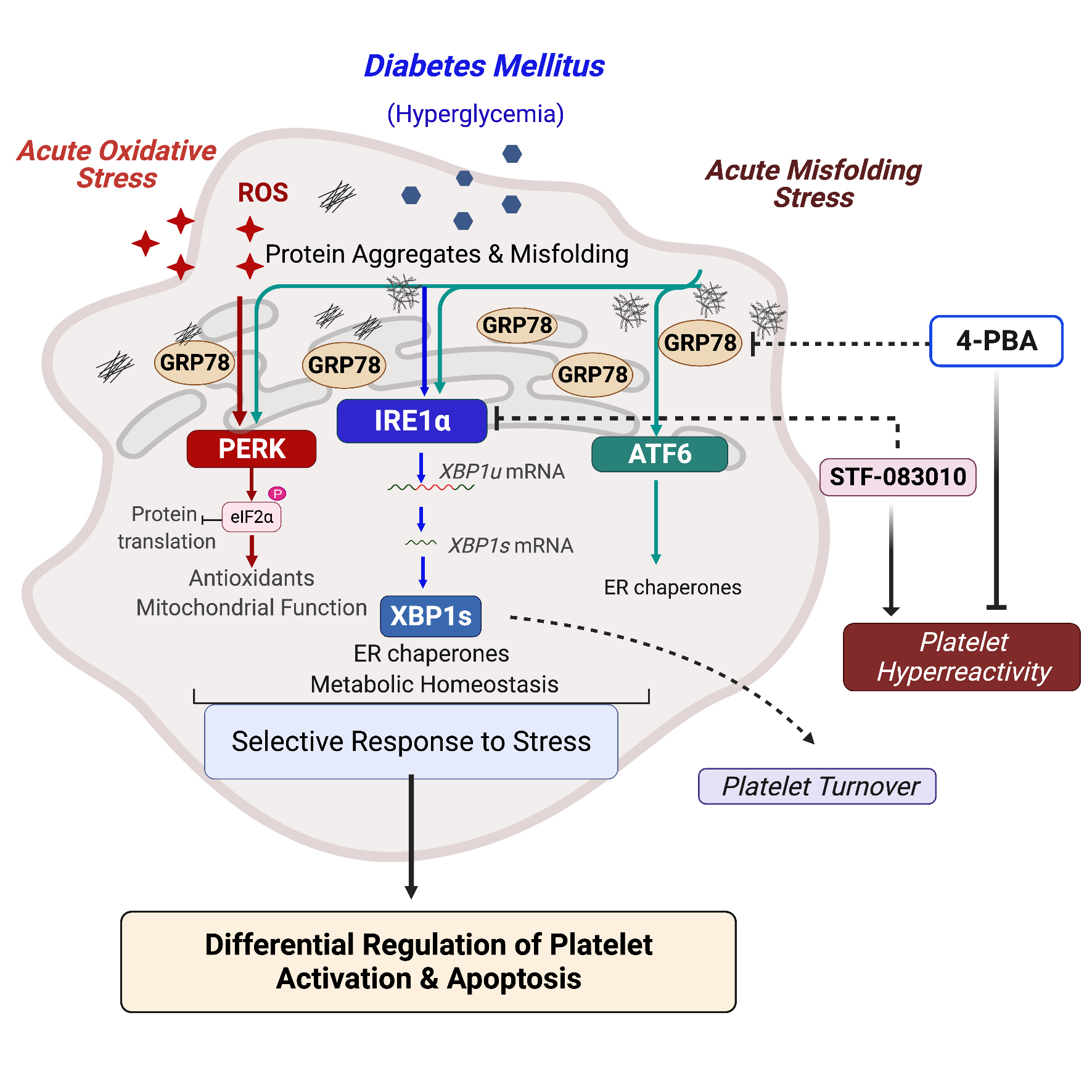A drop of human blood contains tens of thousands of small blood cells called platelets. Platelets prevent and stop bleeding and are thought to play a key role in inflammation and disease progression. Published as a featured article in the Aug. 5 issue of Circulation Research, the study provides insights into the mechanisms which regulate thrombosis, which could have wide implications for vascular disease.
Kanika Jain, MSc, PhD, associate research scientist, Tarun Tyagi, PhD, associate research scientist, and John Hwa, MD, PhD, professor of medicine and principal investigator at the Hwa Lab in the Yale Cardiovascular Research Center (CVRC), study thrombosis or the complex process that forms blood clots. Prior research from the Hwa Lab has shown that diabetes damages endothelial cell function, which may lead to an increased risk of death. There is a critical need to identify treatments designed for diabetic patient platelets.
An organelle called the endoplasmic reticulum is responsible for protein synthesis and quality control. Disruptions — such as cellular stress — can induce a biological process known as unfolded protein response which can regulate both cell survival and apoptosis. In this study, the authors used ex vivo and in vivo experiments to explore UPR and stress induced signaling in platelet physiology and function.
First, the research team exposed platelets to various stressors, such as oxidative and endoplasmic reticulum stressors, which triggered an unfolded protein response. Next, the authors studied platelets in patients with diabetes. They found a highly sensitive and selective stress response in platelet physiology. The results suggest that targeting this response may reduce the risk of stroke in diabetic patients. Finally, the study indicates the potential therapeutic value of targeting the unfolded protein response to improve platelet function.
Yale researchers Jing Du, Xiaoyue Hu, Kanchi Patell, and Kathleen Martin also contributed to this study.
This study was supported by grants from the National Heart, Lung, and Blood Institute RO1-HL122815, RO1-HL150515, and RO1-HL115247.
